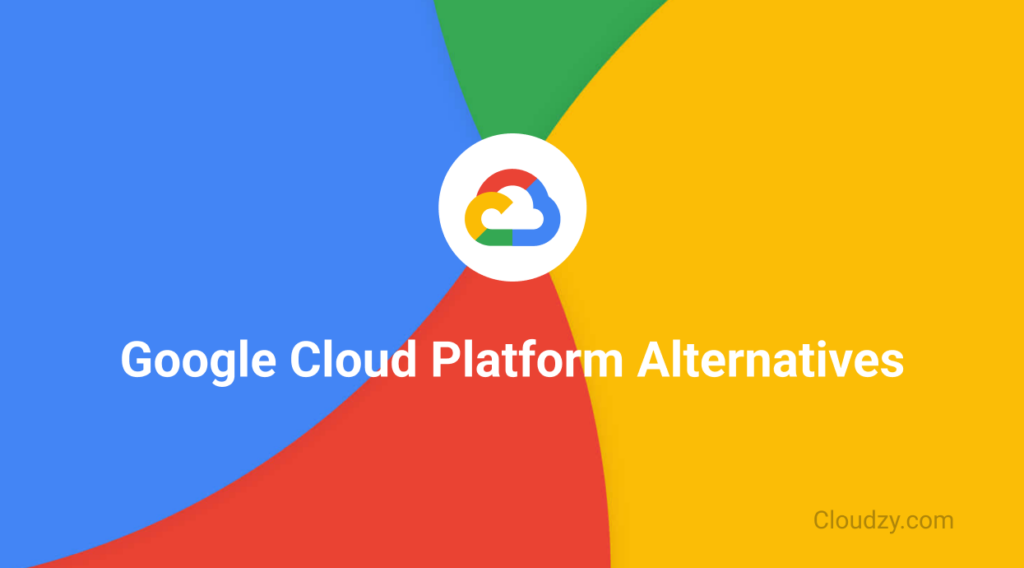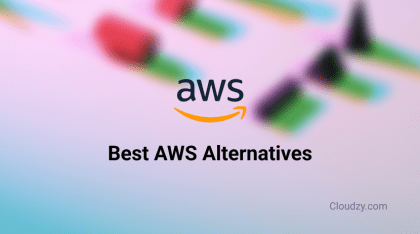Have you ever felt like Google Cloud’s pricing model is more complex than your cloud architecture? You’re not alone. While Google Cloud Platform (GCP) offers cutting-edge technology, its cost structure often leaves businesses grappling with unpredictable bills, surprise charges, and the need for a Google Cloud alternative. The good news is that Google Cloud alternatives are abundant, offering flexibility, affordability, and solutions to GCP’s most common challenges. In this article, we’ll explore the top contenders and help you find the perfect cloud platform to suit your business goals.
Why Consider Alternatives to Google Cloud?
Google Cloud Platform (GCP) is undeniably powerful, offering a comprehensive suite of services that can compete with any cloud provider in the market. However, from our experience at Cloudzy, working with a wide range of cloud platforms and helping businesses optimize their cloud spend, it’s clear that using Google Cloud for hosting isn’t without its challenges.
Cost Complexity
One of the biggest hurdles businesses face when using Google Cloud for hosting is its cost complexity. Managing GCP’s pricing can feel like navigating a maze, especially for teams that are scaling quickly. At Cloudzy, we’ve worked with several organizations through our DevOps as a Service, helping them optimize cloud usage and keep costs in check.
In one instance, a company budgeted $1,500 for the month but was shocked when their bill ended up at $3,200 due to unexpected charges for data egress, API usage, and storage tiers. GCP’s pricing is high, to begin with, and when combined with the unpredictable nature of its costs, it becomes a significant issue for teams, leading them to consider Google Cloud alternatives.
Steep Learning Curve
Another reason why businesses are looking for Google Cloud alternatives is the steep learning curve. While GCP offers some of the most cutting-edge tools available in the cloud space, the platform’s complexity can overwhelm teams without prior cloud or Google Cloud hosting experience. Services like Kubernetes Engine, BigQuery, and others require not only basic cloud knowledge but also advanced expertise. With my experience in the cloud industry, I can confidently say that GCP’s learning curve is steep, even for seasoned developers. It’s a platform packed with powerful features, but navigating its complexities takes time and effort. Many teams find themselves spending more time learning how to configure and optimize GCP’s services than actually building and scaling their applications.
Biased Customer Support
Lastly, there’s the issue of customer support, which is another frustration we hear frequently from users. GCP’s support system often feels more tailored for large enterprises, leaving smaller businesses with slower response times and less personalized help. One developer we spoke with mentioned, “If you’re not a Fortune 500 company, it feels like you’re left to figure things out on your own.” Moreover, as mentioned here, smaller businesses rarely can get past the verification stage, reinforcing GCP’s bias. GCP’s support seems to prioritize larger accounts, which can be frustrating when you’re working with critical issues on a tight timeline. This disparity often leads businesses to seek out Google Cloud alternatives with more responsive and accessible customer service, where they feel their concerns are addressed more promptly.
GCP alternatives can often offer an overall easier experience that allows businesses to scale without the growing pains. Cloud platforms should enable growth, not slow it down, and finding the right provider can make all the difference.
 Start Blogging
Start Blogging
Self-host your WordPress on top-tier hardware, featuring NVMe storage and minimal latency around the world — choose your favorite distro.
Get WordPress VPSKey Factors When Choosing a Google Cloud Alternative
As I mentioned earlier, Google Cloud alternatives are aplenty, so a simple Google search for the top ten lists won’t do. However, for assessing any alternative for Google Cloud, the following factors are key:
Pricing & Billing Structure
Costs are always an important factor. Look for straightforward, predictable pricing structures that work for you, be it pay-as-you-go, per-second billing, or fixed rates. Also, watch out for egress fees, API request charges, data replication costs, and other hidden fees. Lastly, make sure costs scale smoothly, with no unexpected spikes and no penalties.
Performance & Scalability
Scalability and performance are key. Look for flexible resource scaling that lets you expand or shrink as needed without downtime. Furthermore, check for high-performance infrastructure, like Cloudzy’s SSD storage, high-speed networking, and GPU instances.
Ease of Use
Ease of use matters. Look for an intuitive control panel that works for both beginners and advanced users. Likewise, check for one-click setups and pre-configured templates to ease deployment. Lastly, a well-designed interface should make managing resources simple, not a hassle.
Support & Community
Customer support is an important part of your cloud experience. Look for 24/7 availability and tiered support plans that fit your needs. Check response times, support channels (chat, phone, email), and technical expertise to guarantee you get help. Lastly, read reviews on Gartner, TrustRadius, and Reddit to see real user experiences before committing.
Data Centers & Global Reach
Check if the provider has data centers near your target audience for low latency and fast performance. A well-distributed network of locations also helps with disaster recovery and meeting regional data compliance requirements.
Security & Compliance
Strong security and compliance are a must, such as encryption, DDoS protection, and compliance with industry standards like GDPR or HIPAA. IBM Cloud has plenty of industry-specific compliance certifications, like SOC 2, ISO 27001, and FedRAMP.
Ecosystem & Integrations
Check how well the provider integrates with your existing tools and workflows. It’s smart to choose a cloud provider that syncs well, like how Azure integrates with Office 365 and other Microsoft tools. Look for compatibility with CI/CD pipelines, container orchestration systems like Kubernetes, and development platforms such as GitHub or GitLab.
Specialized Features
Look for cloud providers offering industry-specific tools to meet unique needs. For example, AWS and Alibaba cater to e-commerce, and IBM Cloud specializes in AI/finance.
Best Alternatives to Google Cloud: GCP vs. AWS, Azure, IBM, etc.
Today, there is a myriad of cloud providers to choose from; however, the best Google Cloud Platform alternatives can be divided into two groups: the enterprise heavyweights and the niche SMB and startup specialists.
Enterprise Heavyweights
GCP itself is part of this category in general, and for most enterprises that have deep pockets and exhaustive needs, the following Google Cloud alternatives are the best choice.
GCP vs. AWS
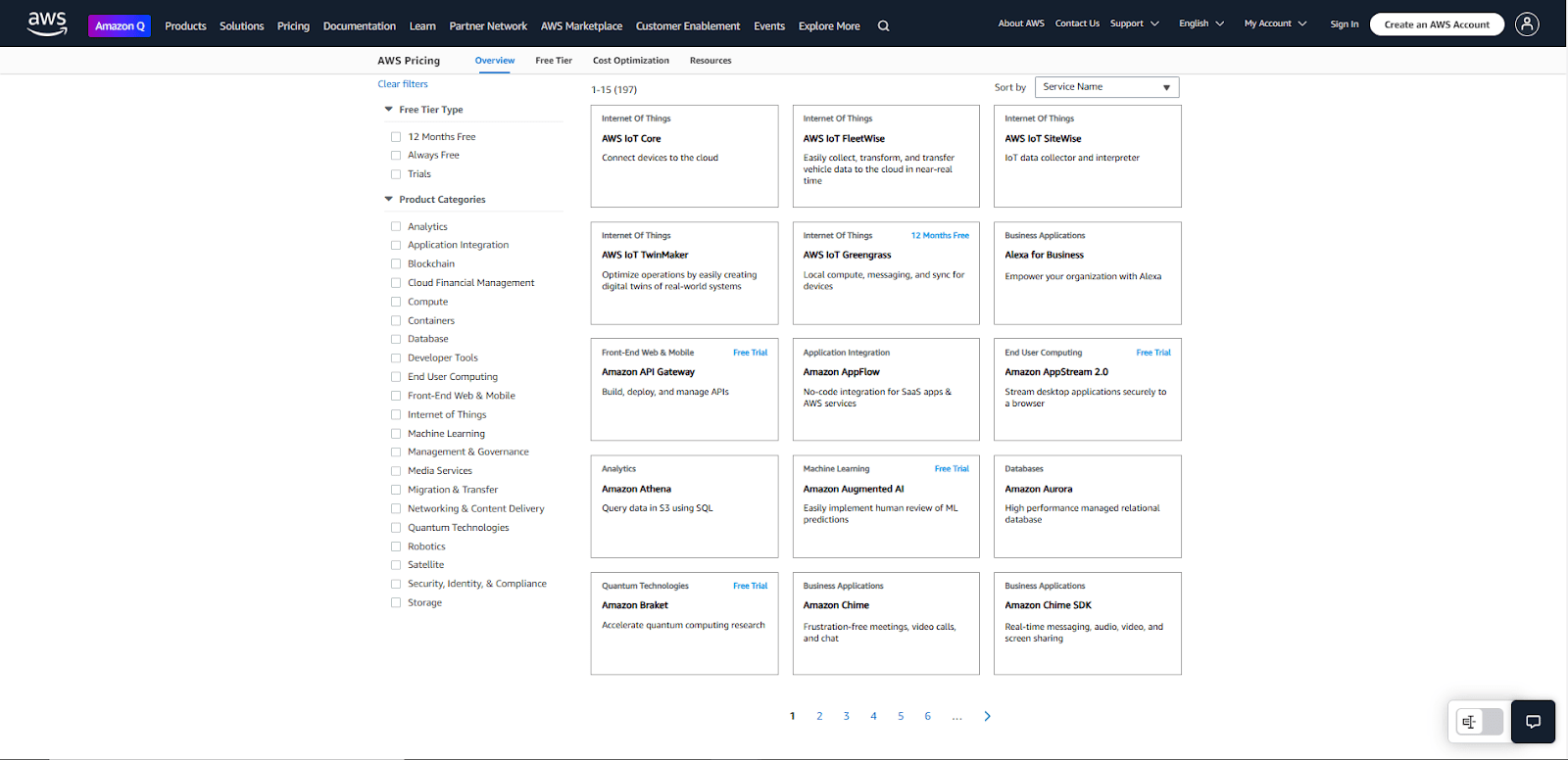
AWS, launched in 2006, is the pioneer of cloud computing and offers the broadest range of services on the market, from AI and machine learning to serverless computing.
- Best for: Large-scale enterprises and developers needing extensive cloud tools.
- Head Start: Compared to GCP, which entered the cloud scene in 2011, AWS’s maturity and massive ecosystem give it a clear edge in reliability and adoption.
- Strengths & Challenges:
- Strength: AWS’s enormous range of tools makes it versatile and capable of handling virtually any workload, generally much more than any other Google Cloud alternative.
- Challenge: Figuring out which tool you need can feel like learning an entirely new language.
- Cost: While AWS’s pay-as-you-go pricing is flexible, users frequently report unexpected charges—something those who use Google Cloud for hosting also struggle with.
GCP vs. Azure
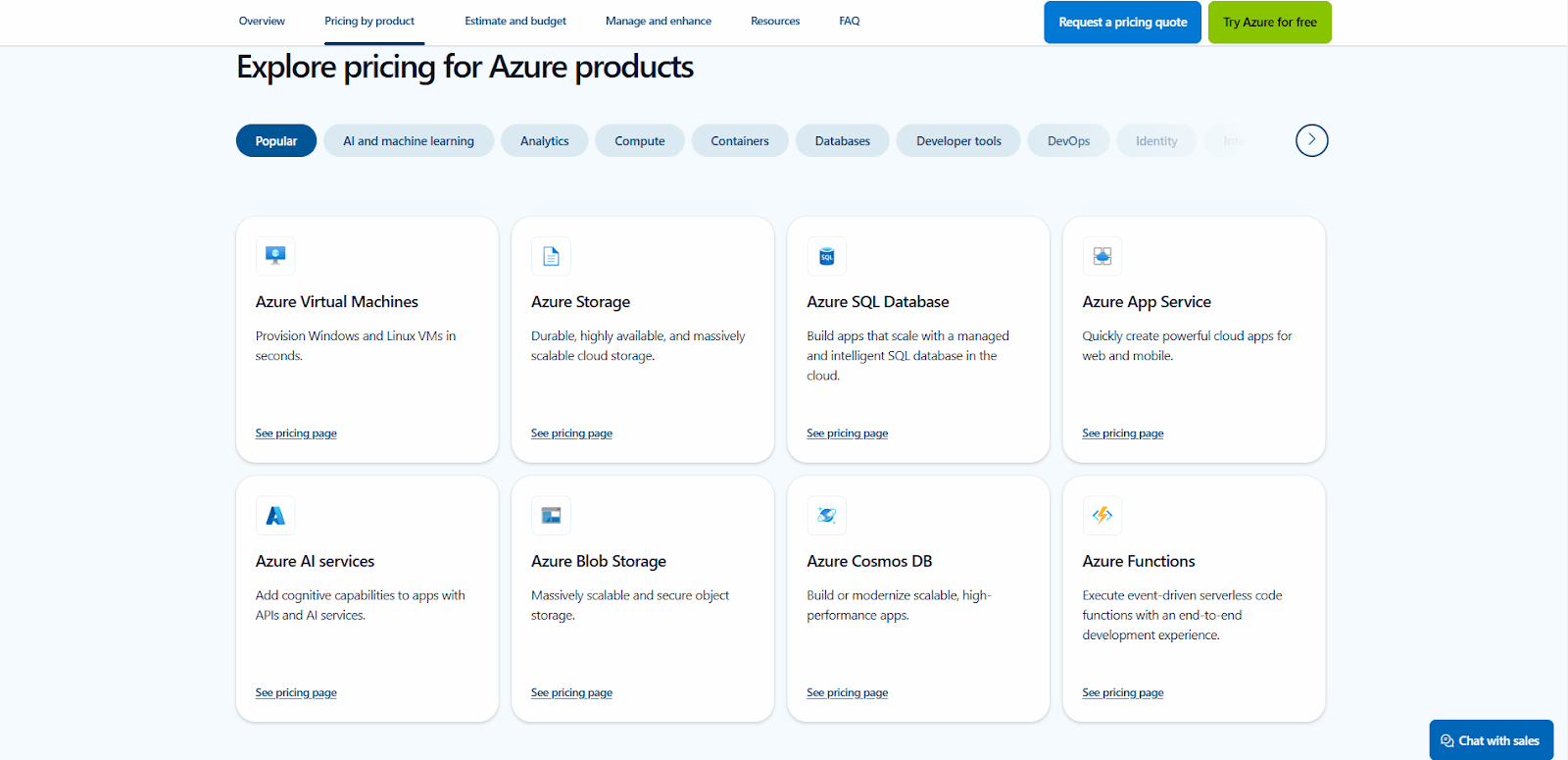
Azure is Microsoft’s cloud computing platform, offering a diverse range of services, such as virtual machines, databases, AI, and analytics, with a focus on hybrid applications and integration with Microsoft services.
- Best for: Businesses already using Microsoft services (e.g., Office 365, Windows Server).
- Hybrid Cloud Advantage: Azure often takes the spotlight for its strong hybrid cloud capabilities, making it ideal for businesses needing a mix of an on-premises alternative and an on-cloud alternative to Google Cloud.
- Global Reach & Security: Azure matches GCP’s global presence and is widely respected for its enterprise-grade security features.
- Challenges:
- Azure’s pricing can be complex and difficult to untangle.
- It’s not always straightforward, especially for teams new to cloud environments.
GCP vs. IBM
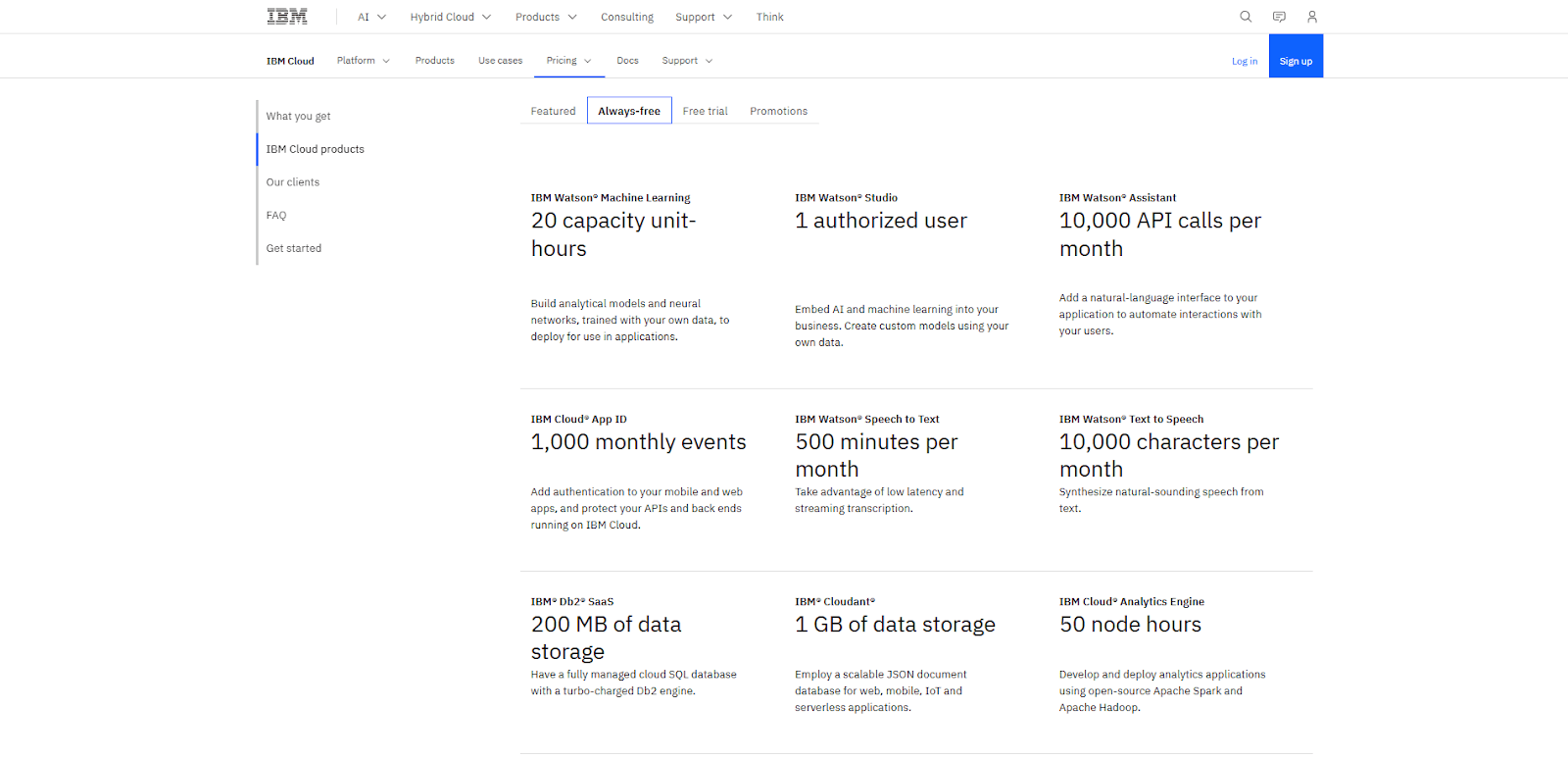
IBM Cloud has carved out a strong position in industries like healthcare and finance, where compliance and security are vital.
- AI Leadership: With Watson leading the charge, IBM Cloud is an excellent choice for businesses that handle large-scale data and need robust AI solutions.
- Strengths:
- IBM excels in industry-specific cloud solutions tailored to meet niche demands.
- Its hybrid cloud offerings are robust, allowing businesses to keep workloads on-premises when necessary while also being an on-cloud alternative to Google Cloud.
- Limitations:
- IBM doesn’t match other enterprise GCP alternatives like AWS or Azure in terms of global reach or the variety of services.
- For companies needing a broader cloud infrastructure, this might be a drawback.
GCP Vs. Alibaba Cloud
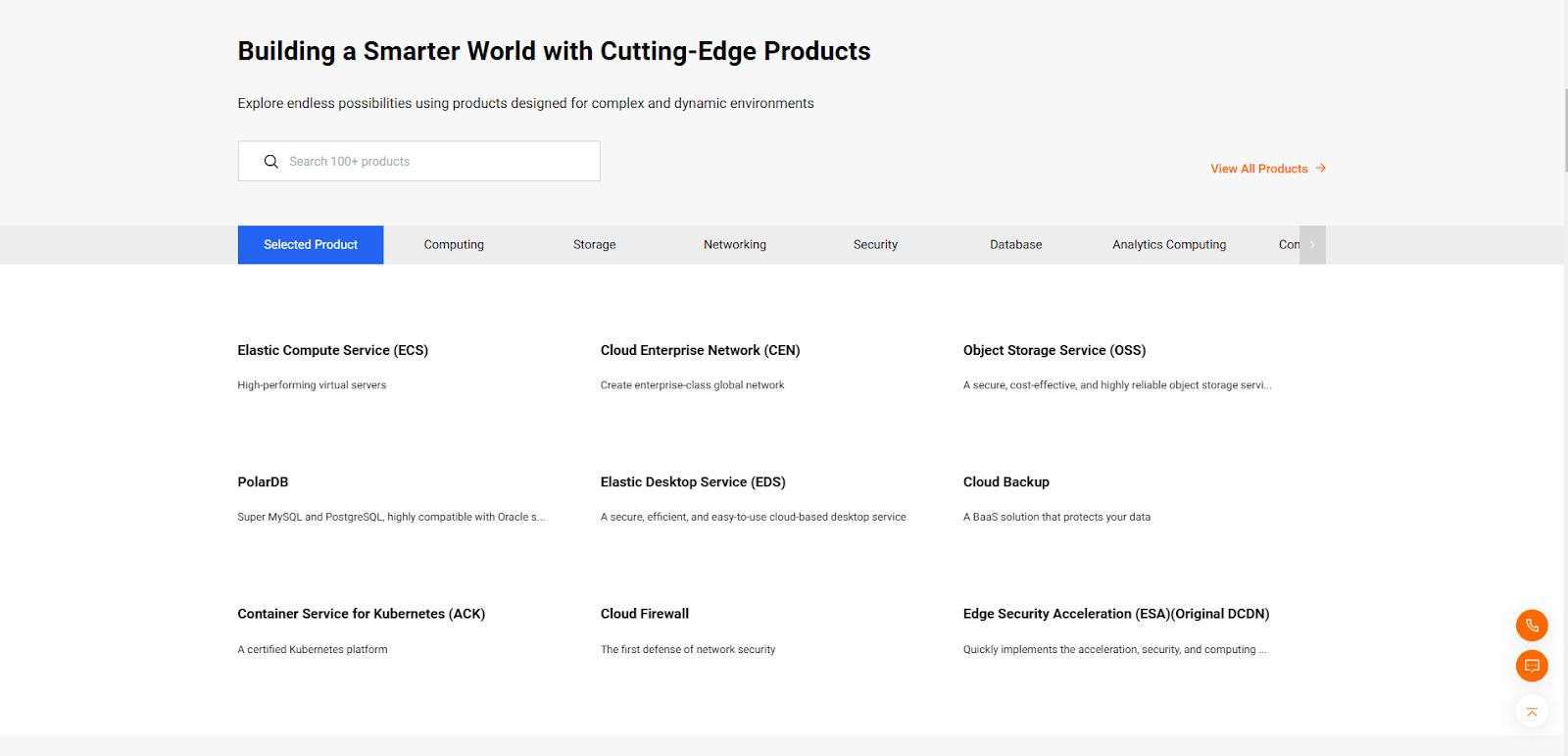
Alibaba Cloud is the third-largest IaaS provider and the biggest Google Cloud alternative in the Asia-Pacific region.
- Best for: Businesses operating in Asia or requiring region-specific cloud solutions.
- Regional Expertise: Alibaba Cloud has a dominant presence in Asia, offering localized data centers and compliance solutions.
- Strengths:
-
-
- Alibaba Cloud stands out in AI and big data solutions, offering tools such as the Machine Learning Platform for AI and E-MapReduce specifically designed for the Chinese market.
- It offers cost-effective cloud solutions with deep integration into Alibaba’s e-commerce ecosystem, making it ideal for businesses tied to Alibaba platforms.
-
- Challenges:
-
- Alibaba Cloud has limited data centers outside Asia, making global deployment more difficult compared to GCP’s widespread infrastructure.
- It has fewer third-party integrations and a smaller global talent pool in comparison to other Google Cloud competitors, which can make adoption more challenging for international enterprises.
Niche SMB, Startup Specialists
While the Google Cloud alternatives suitable for enterprises offer more and, in turn, cost more, the following providers offer close to the same quality of services at more affordable rates by focusing their services on specific use cases or unique qualities.
GCP vs. Cloudzy
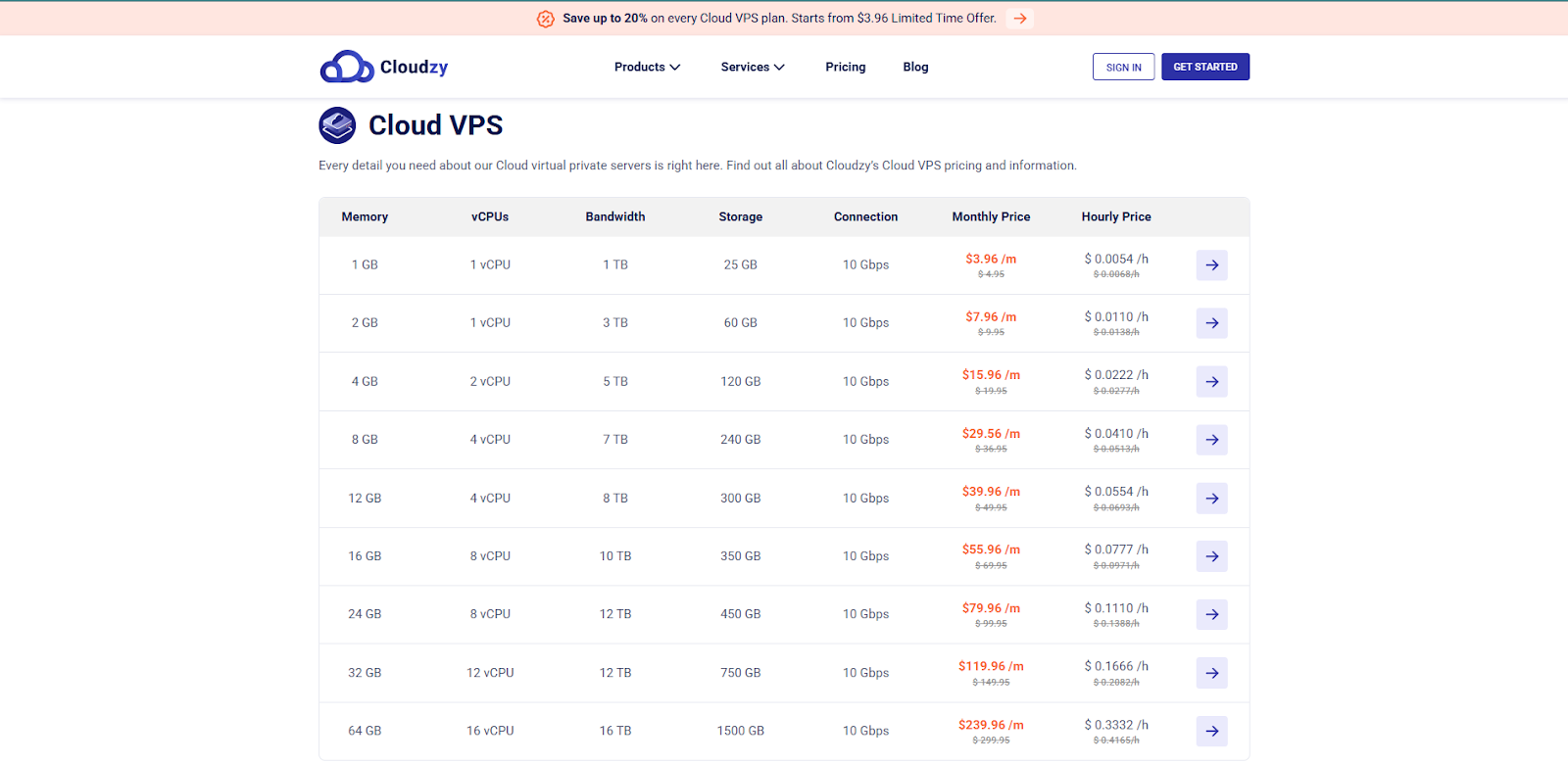
Cloudzy offers a simpler, cost-effective Google Cloud alternative with high-performance infrastructure and transparent billing.
-
- Best for: SMBs, developers, and gamers looking for affordable, high-performance servers with high customizability.
-
Key Features:
-
-
- Unlike GCP’s variable costs, Cloudzy offers transparent, pay-as-you-go pricing with no hidden fees.
- VPS and dedicated servers powered by AMD Epyc and Ryzen CPUs, NVMe SSDs, and up to 40 Gbps bandwidth for maximum speed.
- Dedicated customer support available around the clock, unlike GCP, where smaller teams often struggle with slow response times.
-
-
Tradeoffs:
-
- GCP offers a broader range of managed AI, big data, and analytics services, while Cloudzy focuses on simplified cloud hosting.
- Businesses deeply embedded in Google’s ecosystem may find GCP’s integrations more seamless than Cloudzy’s.
GCP vs. DigitalOcean
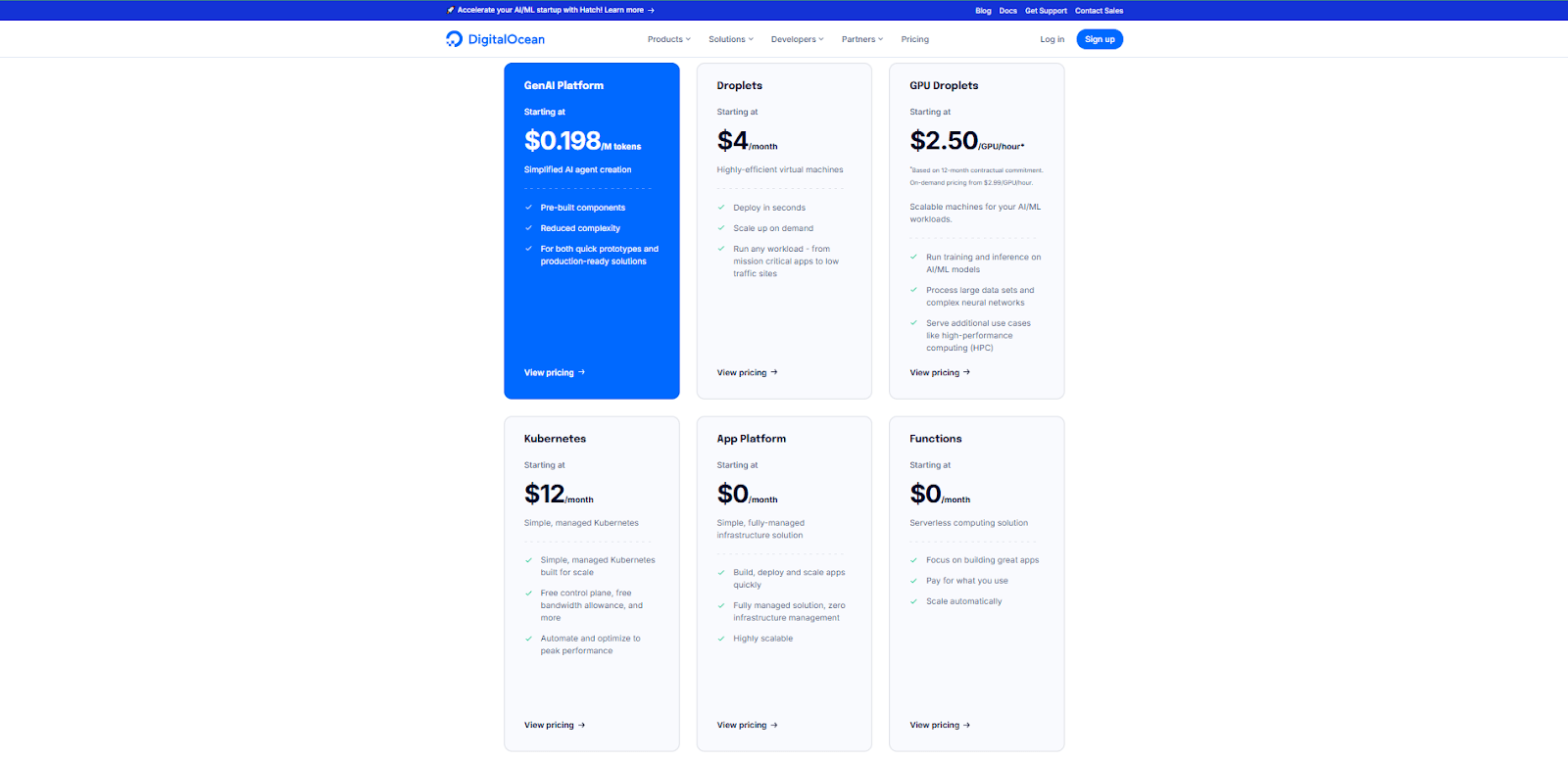
DigitalOcean (DO) may be smaller, but it stands out for its developer-first approach, offering simplicity and transparency where bigger providers often overcomplicate.
- Best for: Startups and developers looking for no-fuss cloud infrastructure without unnecessary complexity.
- Key Features:
- Pre-configured “droplets” simplify deployment, saving time and effort.
- Pricing is refreshingly straightforward, with no hidden surprises—a big plus for smaller teams looking for Google Cloud alternatives.
- Tradeoffs:
- DigitalOcean’s range of services is narrower, which limits its appeal for large-scale operations.
- While it’s great for simplicity, it might not fit enterprises looking for complex, all-in-one GCP competitors.
GCP Vs. Hetzner
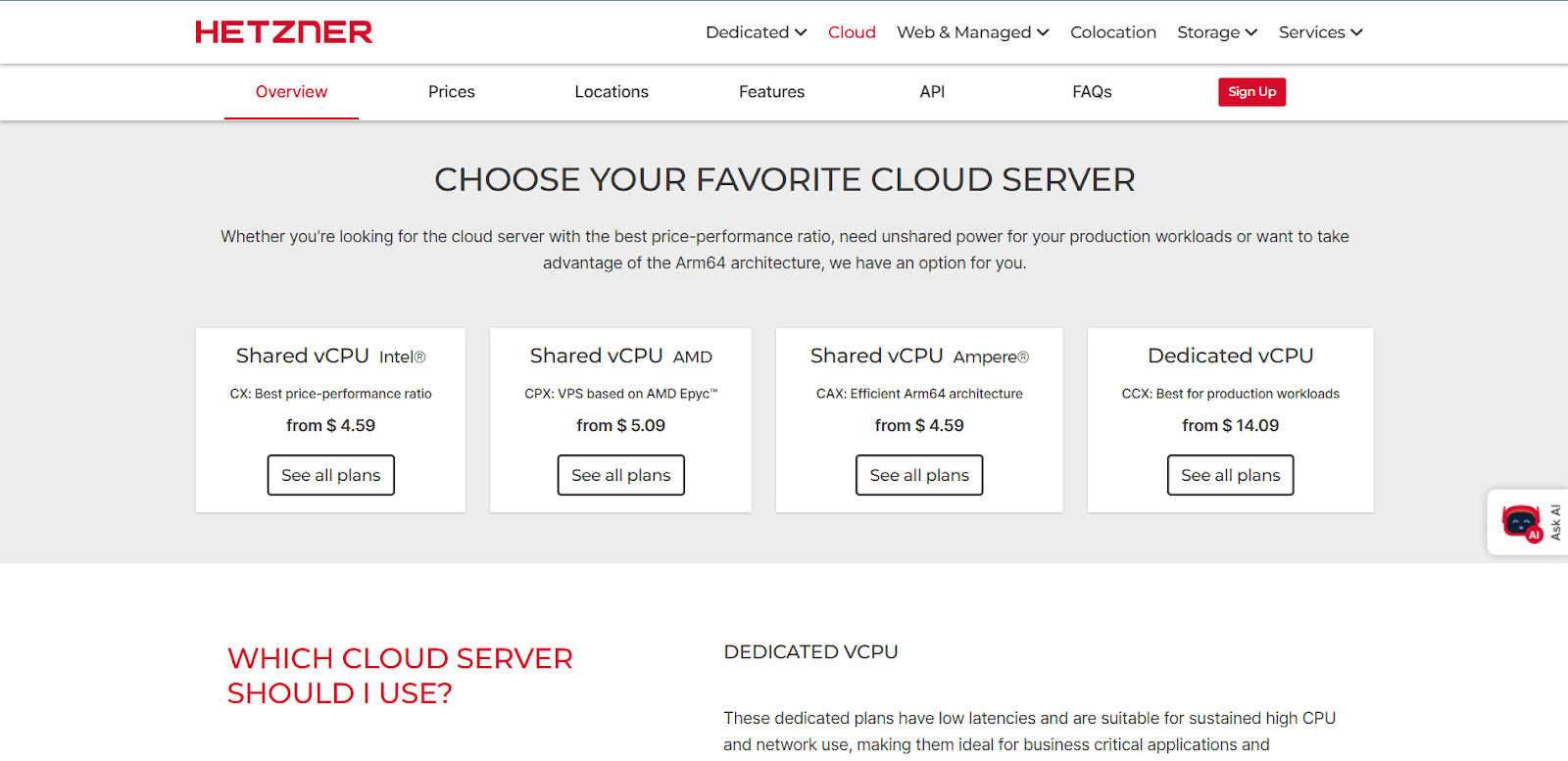
Hetzner provides a no-frills, cost-effective cloud hosting solution, focusing on affordable, high-performance infrastructure rather than an extensive service catalog.
Best for: European users looking for affordable yet powerful VPS hosting.
- Key Features:
-
- Unlike GCP’s complex pricing, Hetzner offers transparent and budget-friendly pricing.
- Dedicated servers with full hardware control.
- State-of-the-art European data centers, known for high security and reliability.
-
-
Tradeoffs:
-
- Hetzner lacks managed databases, Kubernetes, and PaaS solutions, making it a less suitable Google Cloud alternative for users needing advanced cloud-native services.
- Hetzner has a pretty bad track record of over-the-top banning and server abuse.
GCP Vs. UpCloud
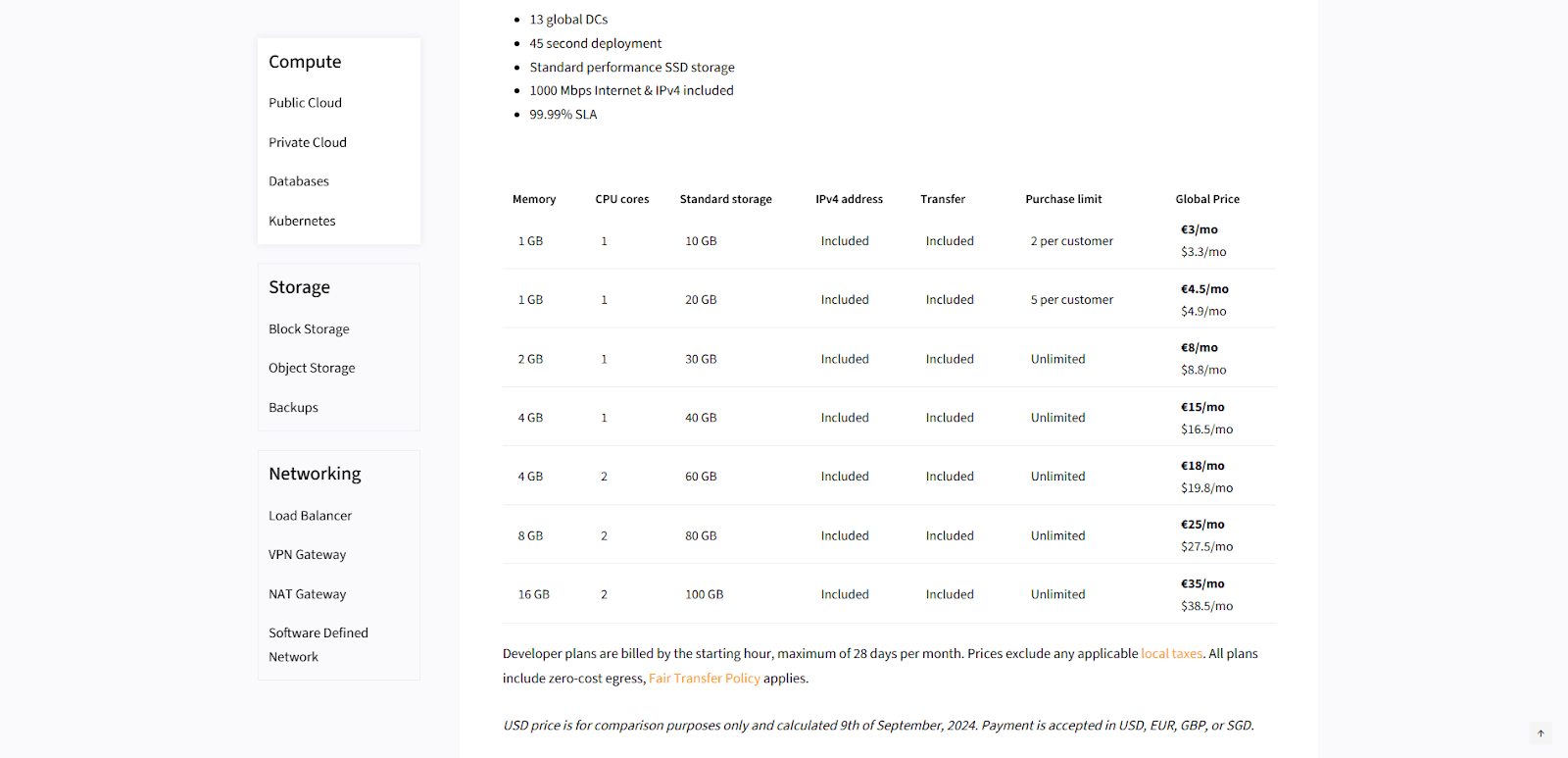
UpCloud is a cloud service provider recognized for its high-performance and proprietary storage services.
- Best for: Developers and businesses seeking high-speed cloud servers with customizable storage options.
- Key Features:
-
-
- UpCloud’s in-house developed MaxIOPS technology delivers read performance of up to 100,000 IOPS at 4k block size, a unique feature among Google Cloud alternatives.
- Offers MaxIOPS for high performance, Standard storage for general purposes, and Archive storage for high-capacity needs, allowing for tailored solutions based on specific requirements.
-
- Drawbacks:
-
- Not beginner-friendly at all.
- Can be close to twice as expensive as other similar GCP competitors like Cloudzy or Digital Ocean.
| Provider | Pricing Model | Scalability | Usability | Performance |
| GCP | Pay-as-you-go, complex tiers | Highly scalable | Requires advanced cloud knowledge | High-performance global infrastructure, low-latency networking, and AI/ML optimizations. |
| Cloudzy | Transparent, pay-as-you-go, cost-effective | Seamless resource upgrades, highly scalable | User-friendly, one-click apps, perfect for SMBs | Reliable performance with SSD-powered servers optimized for small to medium workloads. |
| AWS | Pay-as-you-go, wide options | Extremely scalable | Steep learning curve | Industry-leading performance, global reach, and advanced compute/storage options. |
| Azure | Pay-as-you-go, enterprise | Highly scalable | Great for MS ecosystem users | Strong hybrid cloud performance, integrated tools, and AI/ML capabilities. |
| IBM Cloud | Subscription-based | Moderate scalability | Industry-specific solutions | Strong in AI and quantum computing, but general-purpose performance lags behind Google Cloud competitors. |
| DigitalOcean | Transparent pricing | Moderate scalability | Simple for small teams | Good performance for small to medium workloads but lacks advanced enterprise features. |
| Hetzner | Transparent, competitive pricing | Scalable with dedicated servers | Proprietary control panel may require acclimation | High-performance dedicated servers but limited global data center coverage. |
| UpCloud | Simple, flexible pricing | Scalable with global data centers | User-friendly dashboard; may require sysadmin knowledge | Excellent performance with MaxIOPS technology, ideal for high I/O workloads. |
Want a high-performance Cloud VPS? Get yours today and only pay for what you use with Cloudzy!
Get Started HereFinal Thoughts
Choosing the right cloud provider can be a tough decision. While GCP offers powerful tools, its complexity, and hidden costs often leave businesses struggling to stay on top. And, as you can see, there are plenty of Google Cloud alternatives in 2025.
To put it simply, if you need enterprise-level cloud computing, your best bet is AWS or Azure. On the other hand, for easy, affordable VPS hosting, Cloudzy, DO, and Hetzner should be your go-to. If compliance is a priority, then go for IBM.
As for e-commerce, specifically in the Asia-Pacific region, Alibaba is the clear choice. Lastly, if you need fast, high-performance storage, there is no better choice than UpCloud.
